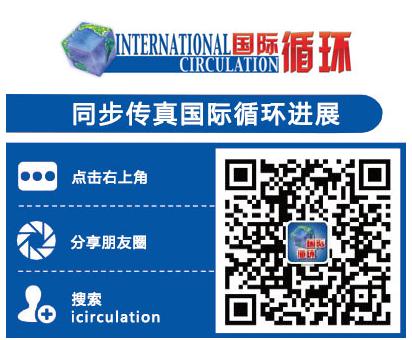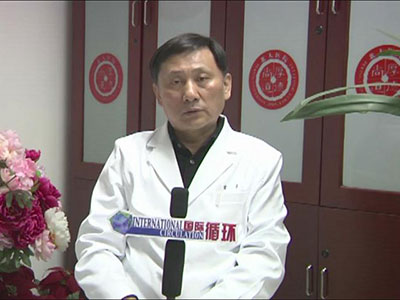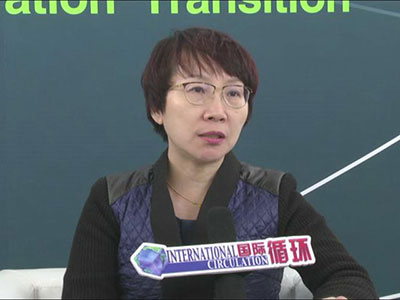[ESH2007]最新ESH/ESC高血压指南工作组成员Narkiewiczi教授:高血压联合用药的费效比
作者:K.Narkiewiczi 日期:2007/7/25 17:22:00
国际循环网版权所有,谢绝任何形式转载,侵犯版权者必予法律追究。
Krzysztof Narkiewicz Gdańsk ,Poland
Title and/or degrees Professor of Internal Medicine; MD, PhD
Current position Professor of Internal Medicine in the Department of Hypertension and Diabetology,and Head of the Hypertension Unit ar the Medical University of Gdańsk.
Special area of interest and expertise ?
The role of the sympathetic nervous system and metabolic factors in the regulation of cardiovascular function in physiological and pathological states, including hypertension, coronary artery disease, congestive heart failure, obstructive sleep apnea, and syncope.
Other activities Serves as a member of international data safety monitoring boards for several clinical trials, including the Randomised Olmesartan And Diabetes MicroAlbuminuria Prevention (ROADMAP) study and the Hypertension in the Very Elderly Trial (HYVET).
? Secretary of the Scientific Council of THE European Society of Hypertension.
? Has received various medical awards , including the Austin Doyle Award of the International Society of Hypertension (2000).
Editorial boards and publications
Editor of Blood Pressure-journal endorsed by the European Society of Hypertension.
? Serves on the editorial board of 12 journals.
? Has published over 100 papers, mainly in the areas of hypertension, cardiovascular disease, and metabolic disorders.
<International Circulation>:Thank you Professor Narkiewiczi very much, I represent Chinese International Circulation and thank you very much for your interview, my first question is there is a gap between recommendations and real blood pressure control, some studies have shown that combination therapy achieves superior blood pressure control, with no increase in adverse events, compared with the monotherapy, so shall we adopt combination therapy more aggressively to achieve the successful blood pressure control, as some people said, ARB and ACEI don’t lower blood pressure quite as much as quite much as other classes of antihypertensive drugs, so what do you think of this situation.
《国际循环》:非常感谢您,Narkiewiczi教授。我代表中国的《国际循环》感谢您接受这次采访。我的第一个问题是目前降血压建议目标与降血压治疗实际情况存在一定差距,有些研究证实:相比较单一药物治疗而言,联合疗法对血压的控制更优,但不良事件却无增加。这是不是可以说我们在降血压治疗中应更加广泛和深入地应用此法?另外,有人说ARB和ACEI类药物相比较其他类药物而言没有足够强的降血压作用,您如何认为?
Prof. Narkiewiczi:I think first of all, you should combine several different drugs to achieve appropriated blood pressure. The new guidelines of European Society of Hypertension and European Society of cardiology stress the role of combination therapy in achieving goals in our patients. With respect to the effects of ACE inhibitors and ARBs, I think they are used in a proper dose. There is no evidence that are less effective than other drugs, so I think all of the drugs used in the monotherapy develop more or less as the appropriate. Of course, because there are several mechanisms involved in the hypertension, if we use only one drug, we only block one of the mechanisms; the other will raise the blood pressure. So the better is to use two drugs in the very beginning, to block two systems. Then we will use lower dose drugs, but we can achieve much significant blood pressure control with fewer side effects. So I think this is the mainstream of the new guidelines to use the new combination therapy. Even some studies have used many drugs to hypertension.
Narkiewiczi教授:首先,我认为应该联合应用多种药物以已使血压降到合理水平。欧洲高血压协会和欧洲心脏病学会颁布的最新指南强调了联合治疗的作用。至于ACEI和ARB药物的作用,我想应将其用在恰当的剂量即可。目前没有证据表明它们药效较其他药物差。我想单一药物治疗中的药物都需要将其用在恰当的剂量。当然,因为高血压涉及多种途径,如果我们只应用一种药物,那么我们只阻断了一种途径;其他途径会促使血压再次升高。所以较好的做法是起初即应用两种药物,阻断两个系统。这时我们应用了较小的剂量,但是我们得到了更好的降血压效果且没有过多并发症。我想这是新版本指南的主流,即应用联合治疗。现在有些研究已开始采用联合药物治疗高血压。
<International Circulation>:Normally, combination therapy will not be cost-effective than monotherapy?
《国际循环》:通常联合治疗似乎要比单一药物治疗花费更高?
Prof. Narkiewiczi:This is the problem in many countries; indeed, there is no assessment for combination therapy. But I think from the economic point of view, I think the cost-effectiveness also make sense, from the use of combination therapy. The compliance is much better, so we can prevent many cardiovascular events in those patients. If they come to cardiovascular disease, it is extremely expensive to treat heart attack or TIA. I think it’s much better to use those drugs. This is a public problem. The basis is the patients must like it with better compliance.
Narkiewiczi教授:这在每个国家都是一个严峻的问题;但目前还没有对联合治疗的经济学相关评价。但是不论从经济学的角度考虑,还是从联合应用药物应用角度考虑,联合治疗长远来讲都是比较值得的。病人的依从性会更好,我们能够预防很多心血管事件。如果这些病人发生了心血管事件,用于治疗心脏病或暂时性脑缺血的花费会相当多。如果应用相应的药物,结果会更好。这也是个公共问题。基础是病人必须具有较好的依从性。
<International Circulation>:The next question is that we always hear that physicians would like to pursue aggressive BP lowering for their hypertensive patients. But what does mean that aggressive blood pressure lowering, assuming it is indeed the goal, but how do we achieve that? What type of patients most needs it does that mean giving as much as drugs to lower the blood pressure as much as possible. And are the patients going to receive it all their lives?
《国际循环》:下个问题是我们常听到内科医生非常热衷于对高血压病人加强降血压治疗。但是加强降血压治疗具体含义是什么呢?假设这就是我们的目标,那么如何达到这一目标呢?什么类型的病人最需要?是指应用尽可能多的药物将血压尽可能降低吗?这样的治疗需要序贯病人的一生吗?
Prof. Narkiewiczi:We should be very aggressive in patients with very high risks of cardiovascular disease, who are very likely to have cardiovascular events in the next 6 months, or 1 year. So if you calculate the global cardiovascular disease risk, it is very aggressively achieving the goal. The education of the patients is very important. The patients must be aware why the treatment is so aggressive, what he will gain from such aggressive treatment, assuming the goals in 3 months. In other groups, the most important thing is compliance, younger subjects, middle age subjects, when the hypertension is found; we should not be too aggressive, because if you lower too much pressure, there might be some side effects, or the flow over of the blood pressure. We could be less aggressive, and achieve the goal step by step. In another group, we also should not be aggressive, it is elderly people. They are much older, with impairment of regulation of cardiovascular system, and we need to adjust it step by step, and do not decrease it too fast, to avoid some hypertension associated problems.
Narkiewiczi教授:对于存在心血管高危因素的病人,我们应该加强降血压治疗,这类病人极有可能在未来6个月或1年内发生心血管事件。如果你计算一下总体心血管病的风险,就可以理解加强药物治疗的用意了。病人应该清楚为什么要加强治疗,他从加强治疗中能够获得什么。另外,最重要的事情是依从性,对于年轻个体、中年个体,一旦发现高血压,不应立即给予过强的降血压治疗,因为如果将血压下降过多,反而会引起副反应或病人不适。我们可以逐渐调整用药,一步一步达到治疗目标。当然,我们也不能对老年人使用过强的降血压药物。这类人群年龄较大,心血管系统调节能力较弱,我们需要对其逐步调节,不能下降太快,以避免高血压相关并发症。
<International Circulation>:The third question is: for most patients with hypertension, they should take the anti-hypertensive drugs all their lives, now the parmaco-ecnomics has been an important part of hypertension research, so what should we consider to assess the cost effectiveness of anti hypertensive drugs, should we guide our clinical practice by it.
《国际循环》:对于大多数高血压病人而言,他们都需要终生服用降血压药物,现在药物经济学已经成为高血压研究中的重要组成部分,我们如何评价抗高血压药物是否经济合理呢?我们是否应将其用于指导临床?
Prof. Narkiewiczi:I think cost effectiveness is very important to be considered, and we should adopt our policy according to the financial situation of the country, and of the patients. The most important goal is to achieve blood pressure reduction. This is about the updates of the physicians, the optimal way of doing this. There is some evidence that indeed, in younger subjects, we can prevent early complications of the hypertension, and because most of the young people are now likely to live much longer, we would like to keep safe and alive for longer time, without the development of ventricular hypertrophy, development of renal failures and so on. So we should adjust the goal according to the health care system, and of particular patients.
Narkiewiczi教授:我想药物的成本效果分析是很重要的,我们应该根据国家、个人的经济状况决定我们的治疗方案。最为重要的事情是达到降血压的效果。这涉及内科医生的知识更新及选择最优的治疗方案。目前有证据表明,在年轻患者中,我们能够预防高血压早期并发症






 京公网安备 11010502033353号
京公网安备 11010502033353号